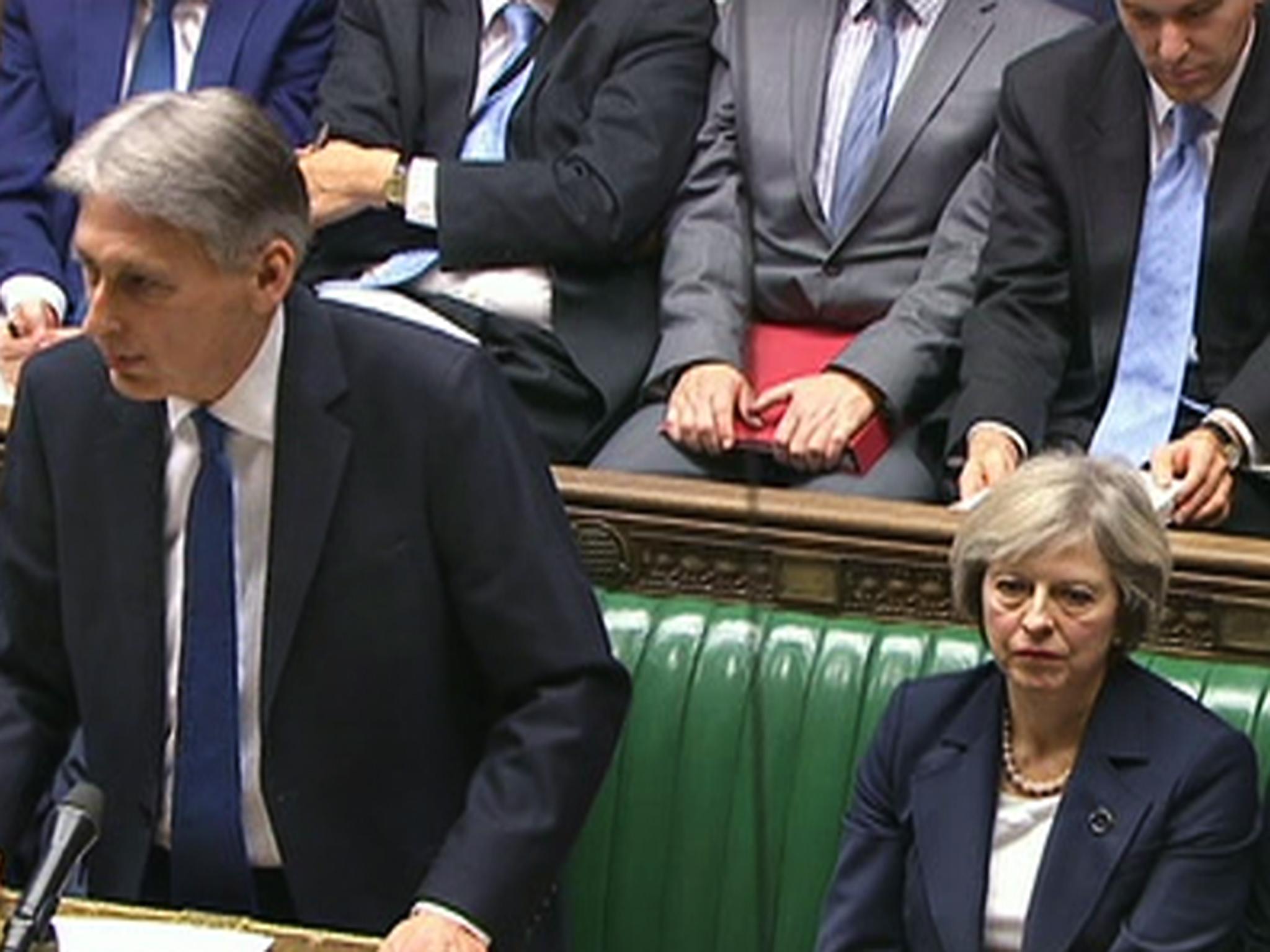Dig deeper into Philip Hammond's claims about austerity and 'Jams' in the Autumn Statement and you'll find the dark truth
The Tories’ gleeful announcement that unemployment is at an 11-year low might sound impressive, if the reasons for it weren't because job centres are encouraged to use 'the hassle factor' to stop people claiming Jobseekers' Allowance, meaning they'll no longer count as officially unemployed


Your support helps us to tell the story
From reproductive rights to climate change to Big Tech, The Independent is on the ground when the story is developing. Whether it's investigating the financials of Elon Musk's pro-Trump PAC or producing our latest documentary, 'The A Word', which shines a light on the American women fighting for reproductive rights, we know how important it is to parse out the facts from the messaging.
At such a critical moment in US history, we need reporters on the ground. Your donation allows us to keep sending journalists to speak to both sides of the story.
The Independent is trusted by Americans across the entire political spectrum. And unlike many other quality news outlets, we choose not to lock Americans out of our reporting and analysis with paywalls. We believe quality journalism should be available to everyone, paid for by those who can afford it.
Your support makes all the difference.After delivering his first Autumn Statement, the Chancellor Philip Hammond pronounced dead the governmental tradition of presenting an Autumn Statement. And consigned to the scrapheap along with that is George Osborne’s promise to eradicate Britain’s deficit by 2020, a significant climbdown for the Tory administration.
Hammond described his budget as “responding to the challenges faced by Britain” and “providing help to those who need it”, but little evidence surfaced of an intention to roll back harmful austerity measures. He outlined the government’s commitment to assisting “Jams” (families who are “just about managing”), but failed to address the concerns of the 3.9 million people in Britain who live in persistent poverty.
In perhaps the most blatant display of ideological ham-fistery, Hammond announced that the Tory commitment to austerity under former Prime Minister David Cameron demonstrated that “controlling public spending is compatible with providing world-class public services and social improvement”.
I wonder if the families of those who have died after being found “fit for work” would agree. The DWP’s own statics show that nearly 90 people died every month between December 2011 and February 2014 after their ESA benefit stopped because a work capability assessment found them able to work.
And I’m sure those communities who have seen their libraries and Post Offices and Sure Start centres close would equate cuts with “world-class public services”. The 81 per cent of women aged 16-30 who said that Jobcentre Plus did not help them find work, and the 59 per cent of women who described attending the job centre as a “humiliating” experience in research published by Young Women’s Trust this week, would surely also be inclined to agree.
The Tories’ gleeful announcement that unemployment is at an 11-year low might sound impressive, if the reasons for it aren’t explored too deeply. There has been a substantial increase in unstable, low-skilled and insecure jobs in Tory Britain, with around 900,000 UK workers now on zero-hours contracts. Many people are declaring themselves self-employed – and therefore on paper counting as “in work” – after encouragement from job centres, but not actually bringing in any work. Leaked internal emails from the DWP showing that staff are encouraged to use “the hassle factor” to make the process of claiming Jobseeker’s Allowance so difficult and frustrating that people give up also give us a glimpse into why so few are now no longer “officially unemployed”.
It’s not all bad news, though, with letting agents banned from charging tenants rather than landlords cripplingly high fees and a reduction in the rate at which benefits are withdrawn from people when they get back into work. However, Theresa May’s administration still seems frighteningly out of touch with the concerns of people on low incomes. Scrapping the hated Bedroom Tax would have been a great start, but Hammond preferred to focus on increasing the number of prison officers and investing in 5G.
The National Living Wage is rising to £7.50 from April next year, but as Dr Carole Easton commented today, by extending the National Living Wage to under-25s, the government could vastly improve the lives of young people and help them live independently. Easton also remarked that “in supporting those who are ‘just about managing’, the government must not lose sight of young people who are just plain struggling”.
The Autumn Statement contained plenty of Labour-directed jibes and the traditional blame of the last Labour administration for Britain’s deficit (not the banks, never the banks), greeted by howls, jeers and muffled grunting. You really could be forgiven for thinking that the budget was being delivered in a posh zoo.
Although Hammond pledged £2.3bn in infrastructure for areas with a high demand for new homes, he also guaranteed an extension of Thatcher’s disastrous Right to Buy scheme. If there’s anything Britain needs it’s the selling-off of more crucial social housing stock, right? Additionally, cash has been promised for new grammar schools, the Tories’ favourite way of creaming off top candidates from state schools and consigning other children in the state sector to failure before they’re even 12 years old.
Hammond says he’s creating “an economy that works for everyone” but his promise to maintain a commitment to fiscal discipline will not inspire hope in those whose lives have been broken by previous austerity measures. Hammond may think he is making concessions by helping “Jams”, but this helping hand does not reach nearly far enough.
Join our commenting forum
Join thought-provoking conversations, follow other Independent readers and see their replies
Comments